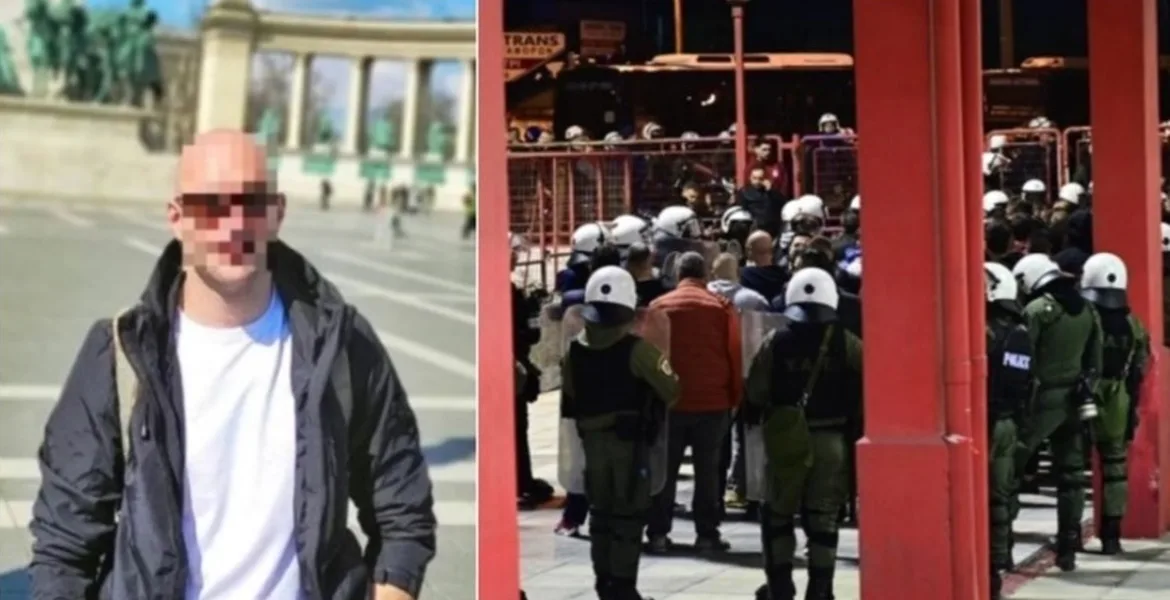The police officer who was seriously injured by a naval flare during incidents outside the "Melina Merkouri" stadium in Athens passed away.
The 31-year-old police officer was intubated in the Intensive Care Unit in critical condition after being viciously attacked earlier this month.
According to the last medical announcement five days ago, doctors were waiting for his body to clear depressant drugs to proceed with neurological function tests immediately after Christmas. However, the policeman did not make it and succumbed to his injuries.
The attending physicians had also performed an amputation of the leg, "due to irreversible ischemic damage and extensive muscle necrosis in the area of the thigh wound and to avoid local septic and systemic complications and serious deterioration of the patient's condition."
For the bloody incident, an 18-year-old man has been remanded in custody and is accused of attempted murder against the 31-year-old police officer.
Greece Shuts Sports Venues for Spectators After Hooligan Violence
Greece announced on December 11 that it asked the Super League to hold soccer matches without spectators for two months after incidents of hooligan violence. This measure, announced by government spokesman Pavlos Marinakis after a meeting at Maximos Mansion the day before, follows serious clashes involving sports fans that resulted in a police officer being critically injured by a flare.
The ban will also apply to the home games of the B-teams in Super League 2 affiliated with the corresponding clubs in Super League 1.
Marinakis said that the fan ban might be selectively expanded to the home matches of Greek clubs in European competitions.
Hooligan violence in Greece has claimed lives
Greek soccer is plagued by endemic fan violence, which often spreads to other sports in which the main clubs field teams, such as basketball and volleyball.
In February 2022 in Thessaloniki, 19-year-old Alkis Kambanos was murdered by a gang of people, who attacked him and his friends in the street. The assailants, supporters of the football club PAOK, asked Kambanos and his friends what football team they supported.
The answer did not satisfy them, and they proceeded to beat and stabbing with knives Kambanos and his two friends.
In August 2023 Michalis Katsouris a fan of AEK Athens was stabbed to death during a brawl with hooligans of the Croatian club Dinamo Zagreb.
Police said nearly 100 people were arrested after the violent clashes, which led European football’s governing body, UEFA, to postpone the Champions League qualifying third-round, first-leg match between the two sides.
Since 1983, when the first death was recorded, at least 13 people have lost their lives in Greece as a result of football hooligan violence and a plethora of violent attacks against rival football team supporters or the police have taken place.
However, the difference between the recent attacks with the ones that happened more than one decade ago, is that hooligans are now better organised and use social media to recruit new members and coordinate their violent actions.
Moreover, according to analysts, the profile of hooligans in Greece, in no way resembles to the profile of the ones in other countries, for example, the UK in the 80s. Hooligans in Greece are largely independent of the football teams and are considered criminals with deep connections to other illegal activities.
READ MORE: Greece’s Stance on Presumption of Innocence in Beleri Case.


